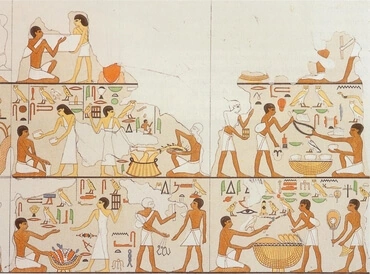1
Cuando Efraín hablaba, todos tenían temor; fue ensalzado en Israel; mas pecó en Baal, y murió.
2
Y ahora añadieron a su pecado, y de su plata se han hecho según su entendimiento estatuas de fundición, ídolos, toda obra de artífices; acerca de los cuales dicen a los hombres que sacrifican, que besen los becerros.
3
Por tanto, serán como la niebla de la mañana, y como el rocío de la madrugada que se pasa; como el tamo que la tempestad arroja de la era, y como el humo que de la chimenea sale.
4
Mas yo soy el SEÑOR tu Dios desde la tierra de Egipto; por tanto no conocerás Dios fuera de mí, ni otro salvador sino a mí.
5
Yo te conocí en el desierto, en tierra seca.
6
En sus pastos se hartaron, se saciaron, y se ensoberbeció su corazón; por esta causa se olvidaron de mí.
7
Por tanto, yo seré para ellos como león; como tigre en el camino los espiaré.
8
Como oso que ha perdido los hijos los encontraré, y romperé el velo de su corazón, y allí los devoraré como león; bestia del campo los despedazará.
9
Te perdiste, oh Israel, mas en mí está tu ayuda.
10
¿Dónde está tu rey, para que te guarde con todas tus ciudades? ¿y tus jueces? De los cuales dijiste: Dame rey y príncipes.
11
Te di rey en mi furor, y lo quité en mi ira.
12
Atada está la maldad de Efraín; su pecado está guardado.
13
Dolores de mujer de parto le vendrán; es un hijo ignorante, porque ya hace tiempo que no debería detenerse al punto mismo de nacer.
14
De la mano del sepulcro los redimiré, de la muerte los libraré. Oh muerte, yo seré tu mortandad; y seré tu destrucción, oh sepulcro; arrepentimiento será escondido de mis ojos.
15
Aunque él fructificará entre los hermanos, vendrá el solano, viento del SEÑOR; subiendo de la parte del desierto, y se secará su vena, y se secará su manadero; él saqueará el tesoro de todas las alhajas de codicia.
16
Samaria será asolada, porque se rebeló contra su Dios; caerán a cuchillo; sus niños serán estrellados, y sus mujeres encintas serán abiertas.







